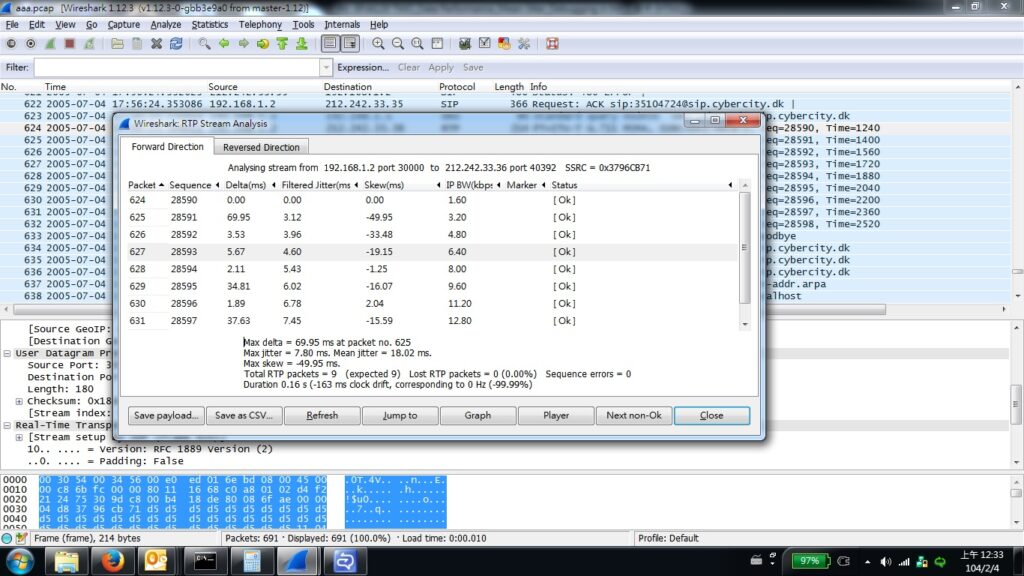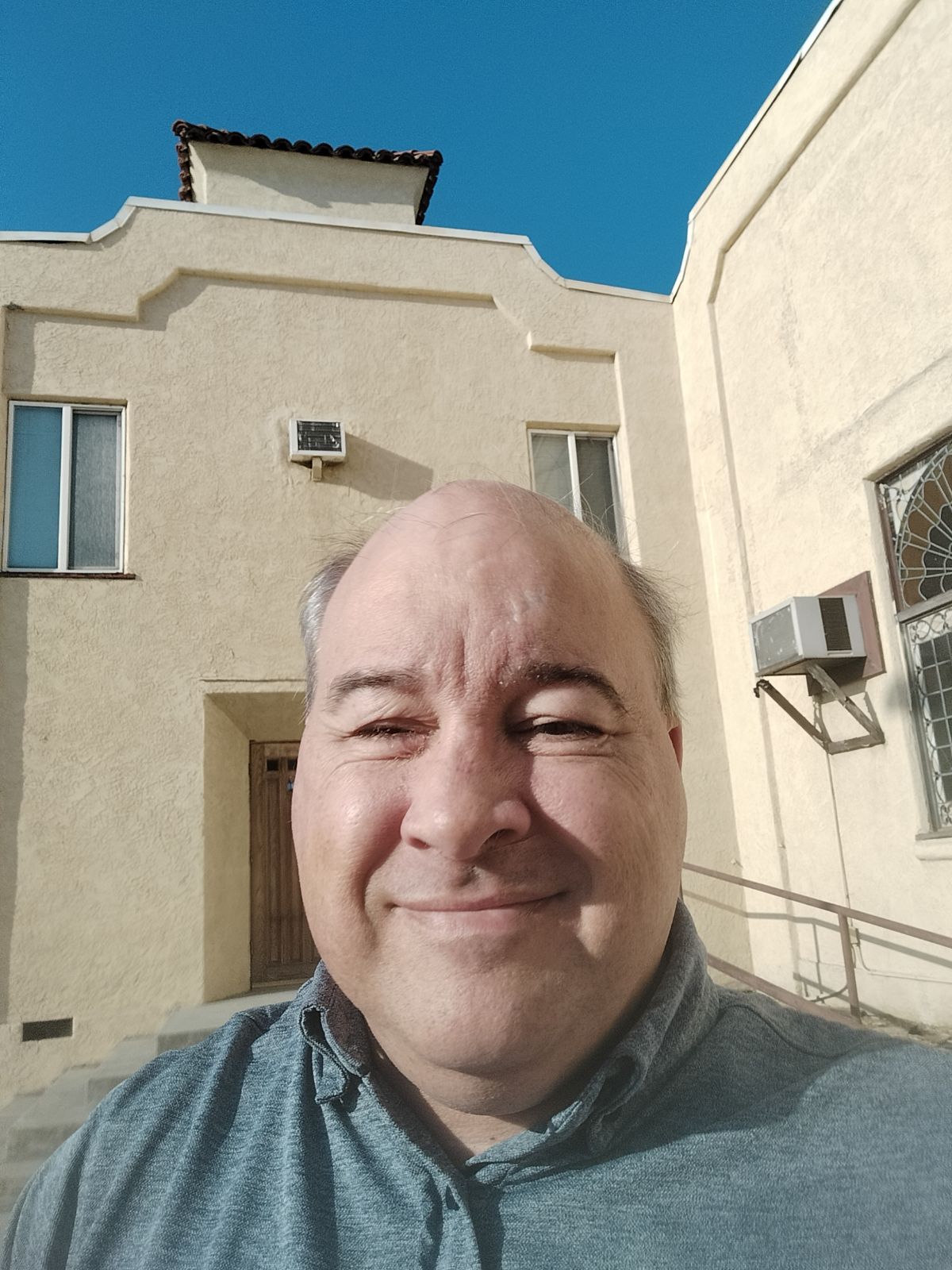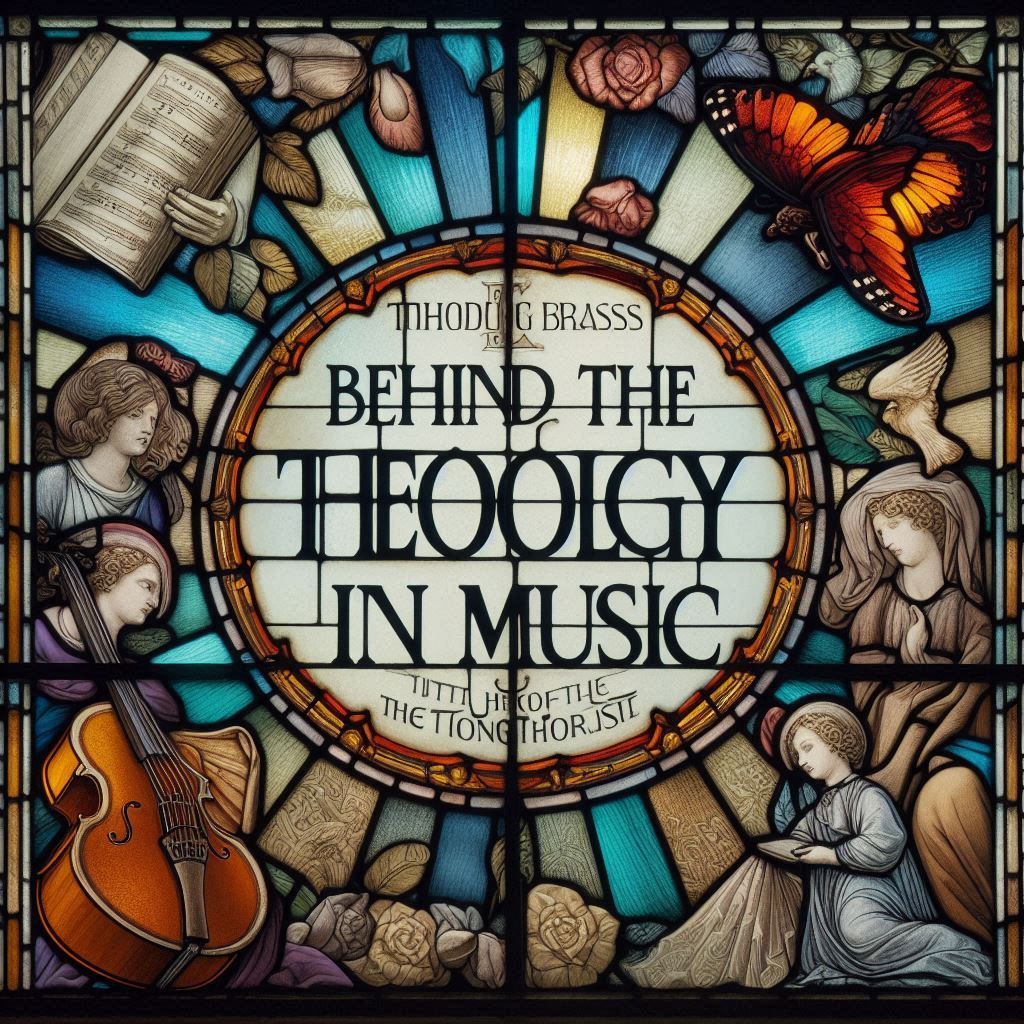I have always felt a deep connection to all things music. Many of my earliest memories have to do with music – spinning Beach Boys: Endless Summer over and over on my grandma’s record player, tearing open the yellow and white speckled cardboard sleeve that contained Michael Jackson’s Thriller cassette when my Mom brought it home after work. I remember hearing AC/DC’s “TNT” on the radio in my cousin’s basement for the first time, running around the elementary school yard the next day, doing my best Bonn Scott impression, and asking if anyone else had ever heard it (nobody had).
Early on, I thought I was going to be involved in music professionally somehow. The first “job” that came to mind was that of the radio DJ. To this day, I still have a box of cassettes of me recording air checks in between songs on my pretend radio station. My friend and I were going to be the next big duo – DJ Jazzy Bret and the Fresh Fish. Maybe you’ve heard of us?
I also grew up in a church that fostered musicianship in children. I was in the Children’s vocal choir and the children and adult bell choirs until I left for college. And, the bell choir director was also the woman I had music lessons with. From middle school to high school I tried to pretend I was competent on the saxophone.
I think most kids envision themselves in the movie industry at some point in their childhood. My friends and I were no different. A couple wanted to be the director, some wanted to be the actors, and we all wanted to blow stuff up. Me? Music supervision. I wanted to pick the songs that helped tell the story of what was happening in the scene.
Even though my dreams of playing like Charlie Parker ended after high school, my connection to music only intensified. My musical spectrum broadened quite a bit and I sold my sax at a pawn shop so I could buy an acoustic guitar (which I still have). I used to be able to pluck the main parts of a few dozen songs. Like the saxophone, though, I never dedicated enough time to it to get very good.
The late 90s/early 2000s brought the internet to the masses. And what was one of the first things I tried to do? Internet radio, of course. My good friend and I developed an internet radio site to stream playlists we created and connect fans to bands. This was before Pandora or iTunes was even a thing – when the only way to stream music was with Real Mediaplayer (RIP). Alas, our real life (and a few DMCA notices) kept that project from getting off the ground.
Right around this time, I learned how to create data-driven websites. So, of course, the first thing I did was create a music database site. It had all sorts of music nerd-y goodness – who performed on what tracks, what instruments they played, where things were recorded, how many people played a specific model of guitar, etc.
As soon as blogging became a thing, I immediately started a music blog. 3 music-related blogs, in fact. This one makes the 4th. Maybe more. I’ve lost count at this point…
As soon as I joined the social media revolution (MySpace anyone?) my top priority was to share music content I found. My Facebook feed mostly consisted of me sharing music videos from YouTube. And, now that I’m a regular user of Spotify, I fire off links to songs to people in text messages like Chow Yun-Fat sprays bullets in a John Woo movie.

As the title of this site implies, the site isn’t purely about music. Another passion has come into my life in the past decade and that is studying the Bible and theology. Even though I attended church every Sunday until I was 18, I was never saved. Oh, sure – I learned how to be a good person. But, I didn’t have any clue what Christianity had to say about why we are here, how the world works, why the world is so messed up, and how it gets fixed.
I went to college, thought I had the world figured out, and rarely stepped foot in church again until I was saved. I have been on a nonstop tear through theological and apologetics books and content ever since.
Almost as soon as one is saved, one wonders how to use their skills and life experiences in the name of Jesus. There comes a moment when you say, “God, this is who I am and these are the skills you have given to me. It might not be much, but I want to put them to use for You however I can”.
I mentioned that I had started a few different music websites. But, in reality, I had started 4-5 other websites as well. They ran the gamut of topics from fatherhood to genealogy to woodworking. So, it will be no surprise to you that when I caught the theology/apologetics bug, I immediately started a website where I could write about it. That website (Legati Christi) is still very active. In fact, I write more there than I do here. The focus on that site remains general apologetics – which is being able to give reasons for why Christianity is true. It’s something that I feel very strongly needs to be a part of every Christian’s life and I continue to write there primarily.
There has been an explosion of Christian apologists in the past couple of decades. Hundreds (if not thousands) of websites and YouTube channels have popped up led by great people who want to defend what Christianity teaches. One of my favorite apologists is former cold-case homicide detective J. Warner Wallace. A piece of advice that he constantly gives up-and-coming apologists is to “stay in your lane”. What he means is this – figure out what you bring to the table and lean into that.
I thought this was great advice. With thousands of people doing the same thing I was doing (creating apologetic content), I needed a way to stand out. What was a word people could use to associate with me? With J. Warner Wallace he’s “the detective guy” because he has taken all of the tools he learned as a detective and promotes them as ways to evaluate the evidence for the Christian worldview. Greg Koukl is “the Tactics guy” because he is best known for a process that makes talking about what you believe easy and non-confrontational. And, William Lane Craig is “the Kalam guy” because he is most famous for his work on the Kalam cosmological argument.
What, then, was “my lane”? Wallace was able to tap into his career as an investigator and use a paradigm most people can relate to in order to talk about apologetics. I’m an IT Systems Engineer. Most people don’t know what that means – unless you work in IT. Most people think of the IT Guy as the person they call when they can’t print or the internet is down. There’s certainly a lot more to it than that, but my point is it’s hard to use IT as a framework to share the gospel with others. So, I would have to use something else as “my lane” apart from the skills I learned from my career. The skills I use to analyze TCP dumps for SIP jitter just don’t translate well.

I was first turned onto the idea that human creativity is an expression of humans being created in the image of God by Person of Interest by J. Warner Wallace. In that book, Jim showed that no other person in history has been in more paintings, stories, or songs than Jesus of Nazareth. Even before he came, the heroes of ancient civilizations often possessed the qualities of Jesus – defending the poor from the powerful, bravery, and giving up their lives to save many others. Many of our desires for a hero are satisfied in the real-life person of Jesus Christ. It’s as if we were designed to look for him…
I was also turned on to the idea of using creative outlets as ways to talk about the Christian worldview around the same time. A lot of this came from Michael Jahoski’s book, The Good News of The Return Of The King, and his podcast Mythic Mission. In his book, Jahoski made the case that The Lord Of The Rings is similar to the parables used in the Gospels by Jesus in that they are fictional stories that share true things. For example, the parable of the Prodigal Son isn’t meant to be considered historically accurate; its purpose is to illustrate that no matter what we have done in the past, God celebrates when we return to him.
There’s a lot more great discussion on that idea that should be had. But, this is a site about theology and music. So, how does that connect?
At about the same time I was reading that book, I also started to see something in the secular music I was listening to. I started to see that – just like many great books do – song lyrics often asked The Big Questions in life. Things that philosophers deal with. Why am I here? Why is there so much suffering in the world? Why do so many Christians behave so badly? And where is God in the midst of all this?
And it wasn’t just written word or song lyrics I was seeing this in. I started to realize that art – be it painting or sculpting or movie making or what have you – was often Man’s use of his creative faculties to ask Bing Questions about the world around him. Or to express his view of the world. This is philosophy. I had already been doing a lot of this on my other site. So, why not find a way to interface the two? Responding to lyrics isn’t much different than responding to an article or a book someone wrote, or a video someone made. The audience and the delivery method are just different.
The lyrical connection is obvious. But, something else happened one day when I was listening to Bach (probably the Brandenberg Concertos). When I contemplated the richness, the complexity, the tonal qualities, and the mind that it took to create all of that I had a sudden realization; it is ABSURD to think that the music we create is anything like the sounds that our supposed animal ancestors create. The enterprise of making music is so vastly more complicated than birdsong or anything our primate cousins could ever do that it is evidence of humans being a special creation.
Notice that I called making music an enterprise. I call it an enterprise because many disciplines are involved in making music before the singer sings the first note or the first string is plucked. Someone had to craft the instruments the musicians play, someone had to build and design the venue the musician is playing in, and someone created the technology to record the musician so we could experience the performance over and over again whenever we want to. Heck, someone even created an entire written language just so music could be written down and communicated to others so they could play it.
As a theologian, I know God’s fingerprints are all over creation. The evidence for His existence is pretty overwhelming if you open your eyes and look around. All created things have something to say about God. Including music.
Bingo. Found my lane.
Some questions immediately popped into my head. Can we find any of God’s properties in music? I can look into the night sky – full of stars – and realize that there is no way all of that just randomly popped into existence. It had to have been created (you can’t get something from nothing). Whatever created it had to be really powerful. And, the being that created it must enjoy beauty because that night sky full of stars looks awesome!
The world around us is full of sound. Much of it we find beautiful. Just like with the night sky, can we learn anything about who we are and how we got here by looking at — and listening deeply to – music?
Other questions come up. How should we relate to music? How should we use music? How does God use music? These are all questions driven by a person’s worldview – how he or she thinks the world works. I am a Christian. My thoughts on who God is (theology) influence everything in my life. How should it influence my thoughts on music?
I don’t have answers to a lot of these questions yet. But the road of discovery ahead really excites me. If it excites you too, I hope you’ll tune in and listen.

David is an author and speaker with Legati Christi where he has written about and spoken on multiple apologetic and theological topics for the past 6 years. He recently launched Theology In Music as a way to combine his love of theology with his other passion in life – music.

Leave a Reply